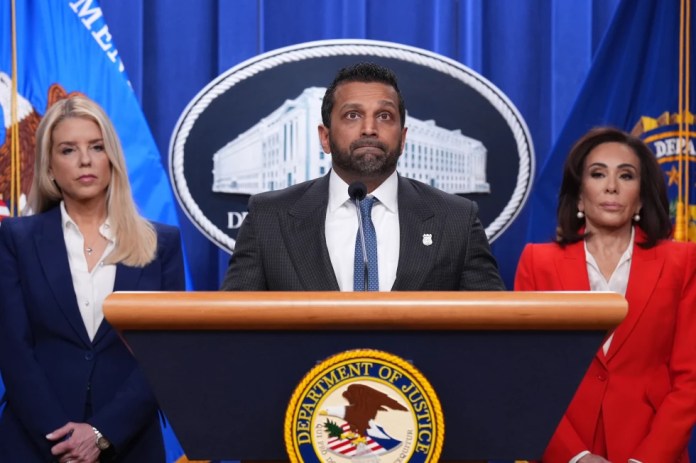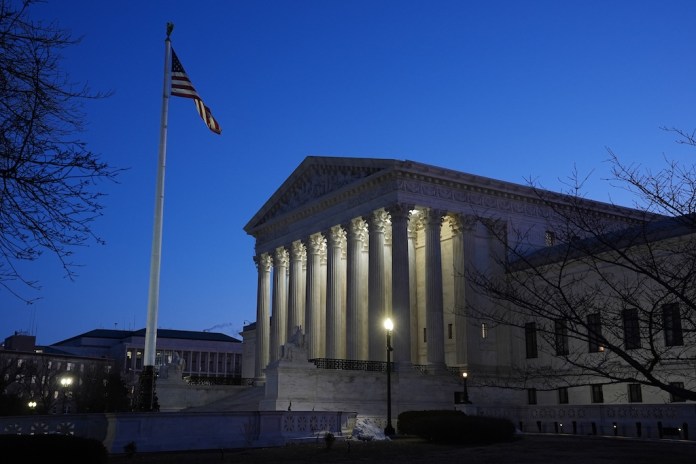Supreme Court makes Trump wait on key decisions – Washington Examiner
The Supreme Court is currently deliberating on several high-profile cases involving the Trump administration as it approaches the end of its term. Even though the Court has issued multiple decisions recently, requests from President Trump and his administration regarding key issues remain pending.
Among these are emergency cases concerning the deportation of convicted illegal immigrants to South Sudan and requests to implement federal workforce reductions. The administration argues that halting deportations poses meaningful harm and that stays on workforce cuts impede the president’s constitutional authority to manage executive agencies.
Additionally,the Court has heard arguments regarding Trump’s executive order on birthright citizenship,focused primarily on the legality of nationwide injunctions imposed by lower courts,rather than the order’s content itself. The decision on this case is anticipated to be one of the final rulings for this term, with opinions expected to be released later in June. The situation remains fluid, with the Court yet to announce decisions on these pressing matters.
Supreme Court makes Trump wait on key decisions
The Supreme Court has issued a flurry of decisions this month as it nears the end of its term, but the Trump administration has been left waiting for key decisions on the high court’s docket.
Requests from President Donald Trump and his administration have dominated the Supreme Court’s emergency docket, and the high court heard arguments late into its term on the issue of nationwide injunctions regarding the president’s birthright citizenship order. As the Supreme Court clears its docket, the cases involving the Trump administration appear likely to fall down the list as unrelated cases argued earlier are released first.
The high court has three emergency requests and one regular case from the Trump administration on its docket which the justices have yet to decide.
South Sudan deportations
The Trump administration asked the Supreme Court on May 27 to stay a lower court’s order halting the deportation of eight convicted criminal illegal immigrants to South Sudan. Solicitor General D. John Sauer argued the federal government suffered “significant and irreparable” harm by having to house the deported illegal immigrants at a U.S. military base in Djibouti.
“Having slammed on the brakes while these aliens were literally mid-flight … the court then retroactively ‘clarified’ its injunction to impose an additional set of intrusive and onerous procedures,” Sauer wrote to the justices.
“The United States has been put to the intolerable choice of holding these aliens for additional proceedings at a military facility on foreign soil — where each day of their continued confinement risks grave harm to American foreign policy — or bringing these convicted criminals back to America,” he added.
The high court has received briefs from both sides of the application, but has yet to issue an order either granting or denying the requested stay of the federal district court’s order. Unlike cases on the regular Supreme Court docket, an order could be released at any time.
Federal workforce reductions
The Justice Department filed a pair of applications to the Supreme Court earlier this month, asking the justices to issue stays allowing for the Trump administration to go forward with different reductions in force across the federal government.
TRUMP SECURES KEY APPELLATE COURT WINS AMID LOWER COURT SETBACKS
In an application to the high court filed on June 2, Sauer asked the justices to allow sweeping staffing cuts across various federal agencies to go into place.
Sauer argued in his petition that “controlling the personnel of federal agencies lies at the heartland” of the president’s constitutional power over the executive branch, and he said a pair of lower courts erred by blocking the president’s workforce reduction plan.
“Every day that the preliminary injunction remains in effect, a government-wide program to implement agency RIFs is being halted and delayed, maintaining a bloated and inefficient workforce while wasting countless taxpayer dollars,” Sauer said, detailing the alleged irreparable harm the lower court’s order has caused.
On June 6, Sauer filed an application to the Supreme Court seeking to stay a lower court’s order blocking the administration’s plans to lay off hundreds of employees at the Department of Education.
He argued to the high court that the pause of the plans was an attempt by the district court to thwart “the Executive Branch’s authority to manage the Department of Education despite lacking jurisdiction to second-guess the Executive’s internal management decisions.”
With both applications, the Supreme Court has received briefs from both sides.
Birthright citizenship case
The high court heard consolidated arguments on May 15 on the topic of nationwide injunctions, which have blocked Trump’s executive order attempting to end birthright citizenship. The decision could pave the way for federal district courts to lose some of their ability to put up roadblocks for Trump executive orders, as it has done in sweeping fashion since he returned to the White House in January.
During oral arguments last month, the justices appeared uncertain on the best path forward regarding the overuse of nationwide injunctions by lower courts. The arguments focused heavily on a solution and standard for district courts to issue nationwide injunctions but did not reveal a general consensus among the justices on how to handle the problem.
The case is expected to deal with nationwide injunctions rather than the merits of Trump’s birthright citizenship order, which is making its way through the lower federal courts.
TOP CASES THE SUPREME COURT WILL DECIDE AT THE END OF THIS TERM
Because the oral arguments in the birthright citizenship case were the last ones held this term, the decision is expected to be one of the last released by the high court before its term ends.
The next Supreme Court opinion release days are June 20 and June 26, but the high court could add additional release days. The Supreme Court has yet to release opinions for 16 cases and typically finishes its term by the end of June.
" Conservative News Daily does not always share or support the views and opinions expressed here; they are just those of the writer."




